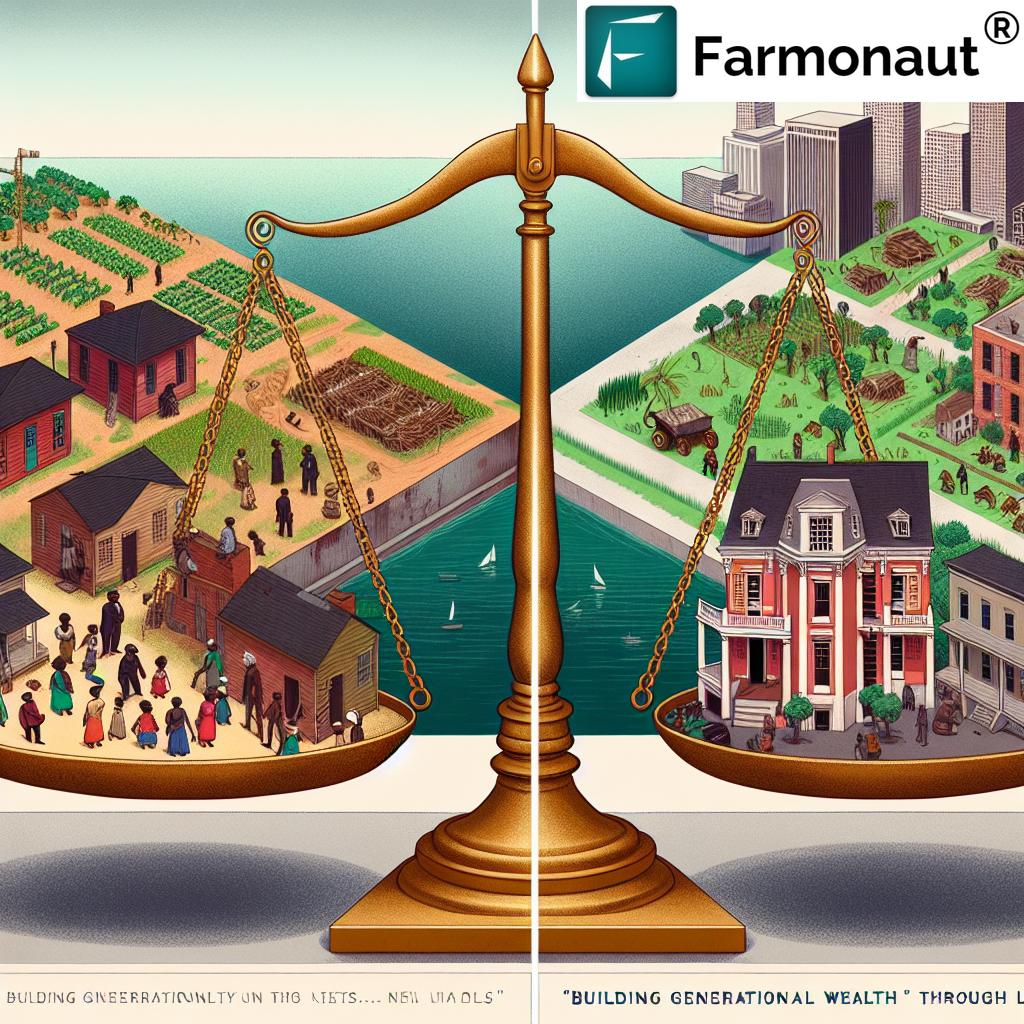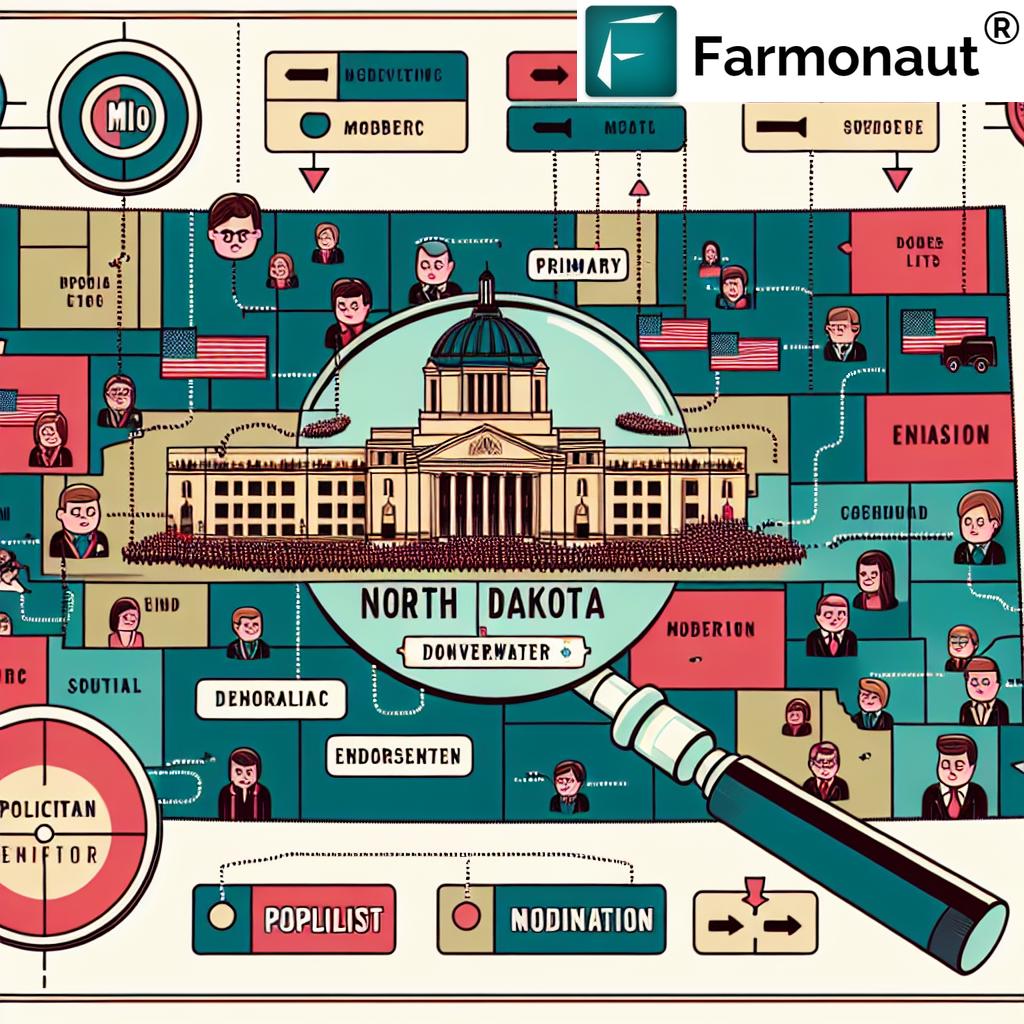Preserving Black Land Ownership: Overcoming Legal Barriers and Building Generational Wealth in Louisiana
“Only 20% of Black and brown families have wills or estate plans, compared to a higher percentage among white families.”
In the heart of Louisiana, a state steeped in rich history and complex racial dynamics, we find ourselves at a critical juncture in the fight for equitable land ownership and generational wealth building. As we delve into the challenges faced by Black landowners in the Pelican State, we uncover a tapestry of historical injustices, legal hurdles, and ongoing efforts to preserve a legacy that has been under threat for over a century.
Our journey through this pressing issue begins in New Orleans, where a recent discussion titled “Building Black Wealth” brought together key figures from the Players Coalition, including founder Malcolm Jenkins and Arizona Cardinals offensive tackle Kelvin Beachum. This event, coinciding with Super Bowl media coverage, shed light on the alarming loss of agricultural land among Black Americans and the persistent obstacles hindering their ability to maintain property across generations.
The Historical Context of Black Land Ownership
To understand the gravity of the current situation, we must first look back to the aftermath of the Civil War. In a remarkable display of resilience and determination, African-Americans managed to acquire over 16 million acres of land. This achievement, born out of immense struggle and sacrifice, represented a beacon of hope for economic independence and stability in the face of overwhelming odds.
However, since 1910, this hard-won land has been systematically eroded. The culprit? A web of legal barriers meticulously woven during the Jim Crow era, designed to impede Black families’ ability to transfer property and establish continuity of ownership. These systemic obstacles prevented many Black landowners from structuring their ownership effectively and accessing the benefits that typical property owners would enjoy.

The Racial Estate Planning Gap
One of the most striking revelations from the discussion came from Thomas Mitchell, a law professor specializing in property ownership rights for Black Americans. Mitchell highlighted a widespread racial estate planning gap that continues to perpetuate disparities in land ownership. The statistics are sobering: only slightly more than 20% of Black and brown families have wills or estate plans, compared to a significantly higher percentage among white families.
This disparity underscores the critical importance of legal mechanisms that can assist in stabilizing property ownership within these communities. Without proper estate planning, Black families are left vulnerable to losing their land through various legal loopholes and complications that arise when property is passed down informally.
Legislative Efforts to Address the Issue
In response to these challenges, Mitchell embarked on a three-year journey to draft a statute aimed at enhancing the stability of property ownership for families. The result of his efforts has been nothing short of groundbreaking. The legislation he produced has since been enacted in 23 states, the District of Columbia, and the U.S. Virgin Islands, marking a significant step forward in the fight against the erosion of Black land ownership.
This new legislation seeks to mitigate the legal obstacles that have historically led to the loss of Black-owned land. By providing clearer pathways for property transfer and protection, these laws aim to empower Black families to retain their land and build wealth across generations.
Local Initiatives in Louisiana
In Louisiana, the fight to preserve Black land ownership has found a champion in Adrienne Wheeler, executive director of Louisiana Appleseed. Working in collaboration with the Players Coalition, Wheeler and her team have been at the forefront of raising awareness about the challenges faced by Black landowners and advocating for legislative changes that would support equitable access to property rights.
Louisiana Appleseed’s initiatives focus on several key areas:
- Educating Black landowners about their rights and the importance of estate planning
- Providing legal assistance to families facing property disputes or at risk of losing their land
- Advocating for policy changes that address historical injustices in land ownership
- Developing community-based solutions to support Black farmers and landowners
These efforts are crucial in a state like Louisiana, where the legacy of plantation agriculture and racial segregation continues to impact land ownership patterns today.
The Role of Technology in Preserving Agricultural Land
As we explore solutions to preserve Black land ownership, it’s important to consider the role that modern technology can play in supporting agricultural communities. Innovative platforms like Farmonaut are revolutionizing the way farmers manage their land, offering tools that can help increase productivity and sustainability.
Farmonaut provides advanced, satellite-based farm management solutions that make precision agriculture accessible to farmers of all scales. Through its android, iOS, and web applications, as well as its API, Farmonaut offers services such as:
- Real-time crop health monitoring
- AI-based advisory systems
- Blockchain-based traceability
- Resource management tools
These technologies can be particularly beneficial for Black farmers looking to maximize the value and productivity of their land, potentially making it easier to retain ownership across generations.
Building Economic Advancement in Communities of Color
The Players Coalition’s initiative extends beyond land ownership, focusing on broader economic advancement within communities of color. This commitment reflects a recognition that land ownership is just one piece of the puzzle when it comes to addressing systemic inequities that persist in wealth accumulation and economic opportunity.
By bringing attention to these issues and seeking legislative solutions, the coalition is working to create pathways for Black families to not only retain their property but also leverage it as a foundation for building generational wealth. This approach recognizes the interconnected nature of land ownership, economic stability, and community development.
“Black Americans have experienced significant agricultural land loss over the past century due to legal barriers and systemic inequities.”
The Importance of Estate Planning for Minority Communities
One of the key takeaways from the discussion in New Orleans is the critical need for increased awareness and action around estate planning in minority communities. The stark disparity in estate planning rates between Black and white families highlights a significant area where targeted education and support could make a substantial difference.
Estate planning is not just about distributing assets after death; it’s a crucial tool for:
- Protecting family wealth
- Ensuring smooth property transfers
- Avoiding legal disputes among heirs
- Minimizing tax burdens on future generations
- Preserving family legacies
For Black families in Louisiana and across the country, comprehensive estate planning can be a powerful weapon against the historical forces that have contributed to land loss and wealth disparities.

Overcoming Jim Crow Era Property Laws
The legacy of Jim Crow era property laws continues to cast a long shadow over Black land ownership in Louisiana and other Southern states. These laws were deliberately designed to create barriers to property transfer and ownership continuity for Black families. Some of the most pernicious examples include:
- Partition laws that allowed a single heir to force the sale of an entire property
- Restrictions on access to legal services for property transactions
- Discriminatory lending practices that made it difficult to finance land purchases or improvements
- Zoning laws that devalued Black-owned property
Overcoming these historical injustices requires a multi-faceted approach that combines legal reform, community education, and targeted support for Black landowners. The work of organizations like Louisiana Appleseed and the Players Coalition is crucial in this ongoing fight for equity and justice in property rights.
The Role of Technology in Modern Agriculture
As we consider the future of Black land ownership and agricultural practices, it’s important to highlight the transformative potential of modern farming technologies. Platforms like Farmonaut are at the forefront of this agricultural revolution, offering tools that can significantly enhance farm productivity and sustainability.
Farmonaut’s satellite-based crop health monitoring system, for example, provides farmers with real-time insights into their fields’ conditions. This technology allows for more precise management of resources like water and fertilizer, potentially increasing yields while reducing costs. For Black farmers working to maintain and improve their land, such tools could be game-changers.
To learn more about how technology is shaping the future of agriculture, watch this informative video:
Building a More Equitable Future
The path to preserving Black land ownership and building generational wealth in Louisiana is complex, but not insurmountable. It requires a concerted effort from multiple stakeholders, including:
- Lawmakers committed to reforming discriminatory property laws
- Legal professionals providing pro bono services to Black landowners
- Community organizations raising awareness and offering support
- Financial institutions developing equitable lending practices
- Technology companies creating tools to enhance agricultural productivity
By addressing the historical injustices that have contributed to the loss of millions of acres of land for Black families, we can begin to create a more equitable future. This future is one where land ownership serves as a foundation for economic stability and generational wealth in communities that have long been marginalized.
The Impact of Legislation on Property Ownership Stability
The enactment of new legislation in 23 states, the District of Columbia, and the U.S. Virgin Islands marks a significant milestone in the fight for equitable land ownership. These laws, drafted with the specific aim of enhancing property ownership stability for families, provide a framework for addressing some of the most pressing issues facing Black landowners.
Key aspects of this legislation include:
- Strengthening protections against forced partition sales
- Simplifying the process for clearing titles on inherited property
- Expanding access to legal resources for property-related issues
- Creating mechanisms for resolving disputes among heirs
While these laws represent progress, their effectiveness will depend on how well they are implemented and enforced. Continued advocacy and monitoring will be crucial to ensure that these legal protections translate into real-world benefits for Black landowners.
The Role of Education in Preserving Black Land Ownership
Education plays a pivotal role in the effort to preserve Black land ownership. Many families are unaware of the legal complexities surrounding property ownership and transfer, leaving them vulnerable to losing their land through various mechanisms. Addressing this knowledge gap is crucial for empowering Black landowners to protect their assets.
Key areas of focus for educational initiatives include:
- The importance of creating wills and estate plans
- Understanding property rights and legal protections
- Navigating the process of clearing titles on inherited land
- Exploring options for sustainable land use and development
- Accessing resources and support for land retention
Organizations like Louisiana Appleseed are leading the charge in providing these crucial educational resources to communities across the state. By empowering landowners with knowledge, these initiatives are helping to build a more resilient foundation for Black land ownership.
Leveraging Technology for Sustainable Agriculture
As we look to the future of Black land ownership in Louisiana, it’s clear that technology will play an increasingly important role in sustainable agriculture. Platforms like Farmonaut offer innovative solutions that can help farmers maximize the productivity and value of their land.
Some key features of Farmonaut that could benefit Black farmers include:
- Satellite-based crop health monitoring for optimized resource management
- AI-driven advisory systems providing personalized farming recommendations
- Blockchain-based traceability solutions for enhanced market access
- Weather forecasting and climate adaptation tools
By leveraging these technologies, Black farmers can potentially increase their yields, reduce costs, and build more resilient agricultural businesses. This, in turn, can contribute to the long-term sustainability of Black land ownership.
For more information on Farmonaut’s innovative solutions, visit their API page or explore their API Developer Docs.
The Path Forward: Collaborative Solutions
Addressing the complex issues surrounding Black land ownership in Louisiana requires a collaborative approach. No single organization or initiative can solve these challenges alone. Instead, we need a coordinated effort that brings together various stakeholders, including:
- Government agencies at the local, state, and federal levels
- Legal professionals and advocacy groups
- Community organizations and grassroots movements
- Financial institutions and economic development agencies
- Agricultural experts and technology providers
By fostering partnerships and sharing resources, we can create a more comprehensive and effective approach to preserving Black land ownership and building generational wealth in Louisiana.
Conclusion: A Call to Action
The fight to preserve Black land ownership and build generational wealth in Louisiana is far from over. However, the recent discussions in New Orleans and the legislative progress made across multiple states offer hope for a more equitable future. As we move forward, it’s crucial that we continue to raise awareness, advocate for policy changes, and provide support to Black landowners and farmers.
Whether through education, legal reform, or the adoption of innovative agricultural technologies, there are many ways to contribute to this important cause. By working together, we can help ensure that the legacy of Black land ownership in Louisiana is not just preserved, but strengthened for generations to come.
Farmonaut: Empowering Farmers with Innovative Technology
As we consider the future of agriculture and land management, it’s worth highlighting the innovative solutions offered by companies like Farmonaut. While not directly involved in the legal aspects of land ownership, Farmonaut’s technology can play a crucial role in helping farmers, including Black landowners, maximize the productivity and sustainability of their agricultural operations.
Farmonaut offers a range of tools that can benefit farmers of all scales:
- Satellite-based crop health monitoring for precise resource management
- AI-driven advisory systems for personalized farming recommendations
- Blockchain-based traceability solutions for enhanced market access
- Fleet and resource management tools for optimized operations
By leveraging these technologies, farmers can potentially increase their yields, reduce costs, and build more resilient agricultural businesses. This, in turn, can contribute to the long-term sustainability of land ownership and generational wealth building.
Earn With Farmonaut: Farmonaut also offers an affiliate program that allows individuals to earn while helping farmers save money. By sharing your promo code, you can earn a 20% recurring commission while helping farmers save 10% on Farmonaut’s services. Onboarding just 10 Elite farmers monthly could potentially earn you a minimum of $148,000 annually. To learn more about this opportunity, visit Farmonaut’s Affiliate Program.
Black Land Ownership Trends and Challenges in Louisiana
| Time Period | Estimated Black-Owned Agricultural Land (acres) | Key Legal Barriers | Initiatives to Preserve Ownership |
|---|---|---|---|
| Early 1900s | 16,000,000+ | Jim Crow laws, Racial segregation | Limited due to systemic racism |
| 1950s-1960s | ~12,000,000 | Discriminatory lending practices, Heir property issues | Civil Rights Movement begins to address inequalities |
| 1980s-1990s | ~7,000,000 | Continued heir property complications, Limited access to legal resources | Formation of Black farmer advocacy groups |
| 2000-2020 | ~4,000,000 | Ongoing partition sale issues, Lack of estate planning | Legal aid initiatives, Educational programs on land retention |
| Present Day | ~3,500,000 (estimate) | Racial estate planning gap, Complex title clearing processes | New legislation in 23 states, Increased awareness campaigns, Technology adoption for farm management |
Frequently Asked Questions
Q: What are the main factors contributing to the loss of Black-owned agricultural land in Louisiana?
A: The main factors include historical Jim Crow era laws, discriminatory lending practices, lack of estate planning, heir property issues, and forced partition sales.
Q: How can Black landowners in Louisiana protect their property rights?
A: Black landowners can protect their property rights by creating wills and estate plans, seeking legal assistance to clear titles, understanding their rights under new legislation, and exploring sustainable land use options.
Q: What role does education play in preserving Black land ownership?
A: Education is crucial in empowering Black landowners with knowledge about property rights, estate planning, legal protections, and resources available for land retention and development.
Q: How can technology like Farmonaut help Black farmers in Louisiana?
A: Farmonaut’s technology can help Black farmers by providing tools for efficient farm management, crop health monitoring, and resource optimization, potentially increasing productivity and profitability.
Q: What recent legislative changes have been made to address Black land ownership issues?
A: Recent legislation enacted in 23 states, including measures to protect against forced partition sales and simplify title clearing processes, aims to enhance property ownership stability for Black families.
















